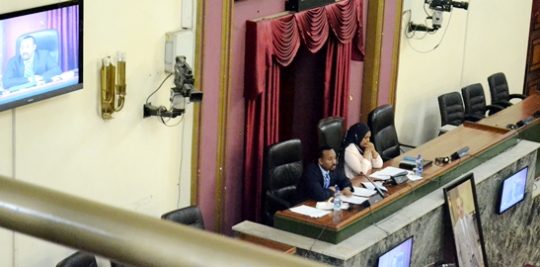The recent announcement of the Ethiopian government to sell share of the state monopoly Ethio Telecom includes liberalization of the sector, says Prime Minister of Ethiopia.
“We are not moving from government monopoly to private monopoly,” said Prime Minister Abiy Ahmed, who briefed the national parliament this afternoon. “…If Somalia with 12 million population has four telecom operators, Ethiopia with over a hundred million population has to also open its doors to multiple telecom operators,” he said.
Commenting about the implementation of the partial privatization of the state monopoly, the Premier Abiy stated that 30-40% of the share will be sold to one of the top ten telecom company in the world with excellent industry knowledge and track record.
The privatization process will be taken care of carefully and may take over a year, according to Prime Minister Abiy. He also mentioned privatization of mining companies and large coffee farms as bad examples which failed to benefit the mass ending up in the hands of the few.
He further stated that 5% of the total share of the Ethio Telecom will be sold to Ethiopian nationals both at home and abroad. But that 5% share will be owned by many people not by an individual who can afford to but that 5% share, according to the prime minister.
Speaking on the need for privatization of the big companies, he noted that the government of a developmental state is to serve as a bridge for the development of the private sector and capitalism.
Loan burden
“Our country has joined the highly indebted countries category,” Prime Minister Abiy said, commenting on the loan burden of the country, which has reached $24.7 billion, of which 43.9% is loan by state companies.
He noted that the current foreign currency crisis in Ethiopia is exacerbated because of the poor management and failures of the state companies, which were supposed to start exporting products and services such as, sugar factories, electric power.
In the coming two years Ethiopia is expected to payback $6 billion dollars and ongoing state projects need $7 billion, according to Yinager Dessie, an economist and ruling party member, who spoke to state broadcaster last night.

